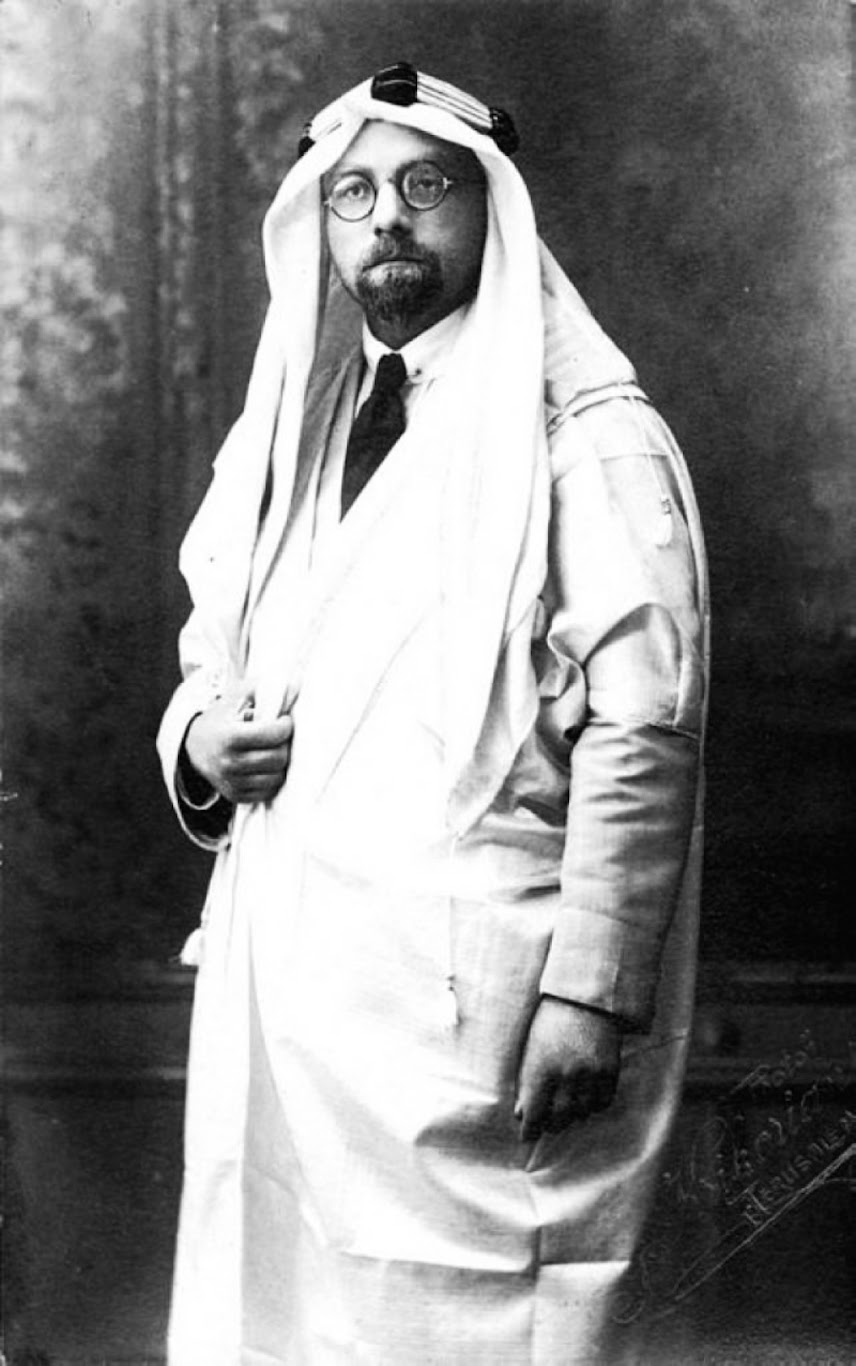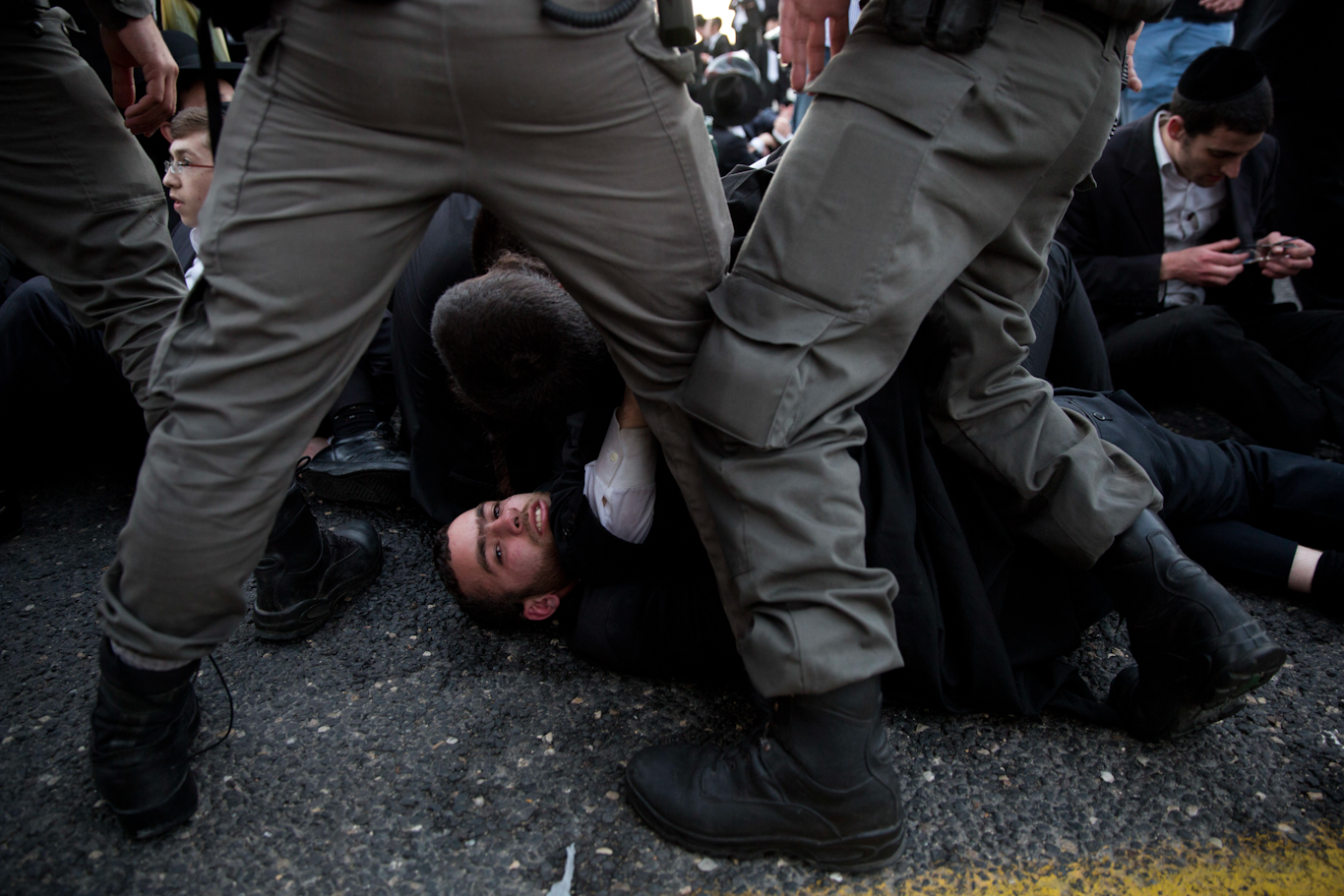The Government of Israel Has A Very Serious Antisemitism Problem
The government of Israel is engaged in what is perhaps the worst example of antisemitism in the world today, writes Miko Peled, and its aimed at its very own Orthodox Jewish community.
Jerusalem, Palestine — As Zionist organizations around the world weaponize antisemitism and use it as a tool to bring down politicians and other public figures with whom they disagree, the state of Israel is engaged in what is perhaps the worst example of antisemitism in the world today.
A rebellion against the Almighty
According to Halakhah, strict Jewish law, the Jewish people have been in exile as a result of a heavenly decree for sinning against the Almighty. According to the Talmud, the central text of Rabbinic Judaism and the primary source of Jewish law – exiled Jews took three vows they must observe while in exile:
- Not to rebel against the nations
- To avoid a mass return to the Holy Land
- To avoid any actions that will hasten the end of the exile
Orthodox Jews, therefore, consider Zionism to be a rebellion against the Almighty and a severe violation of Jewish law. As early as the year 1900, some of the best-known Rabbis from Jewish communities around the world published a book they called “Or Layesharim,” or
“Light Unto the Righteous. ” Published in Warsaw, it is a collection of letters condemning Zionism. From then on, even and to this very day, their opposition and total condemnation of Zionism continues.
“Light Unto the Righteous. ” Published in Warsaw, it is a collection of letters condemning Zionism. From then on, even and to this very day, their opposition and total condemnation of Zionism continues.
During the Nazi occupation of Europe and as a result of the Holocaust, Ultra-Orthodox communities in Europe were wiped out. Those who survived moved to the U.S., the UK and other places, including the Holy Land where they picked up their struggle against Zionism, rejecting the state of Israel. The most vocal and well known among these was Rabbi Joel Yoel Teitelbaum better known as the Satmar Rebbe. Teitelbaum managed to build and lead an enormous anti-Zionist Ultra-Orthodox Jewish community.
Dr. Yaakov De Haan
The Ultra-Orthodox community uses education and protests in its struggle against Zionism and has never once taken up arms or even threatened to do so. Israel, on the other hand, utilizes all of the power it possesses, including enormous amounts of violence, against this community.
On the night of July 1, 1924, a Zionist terror gang commanded by Yitzhak Ben-Zvi, (who later became the president of the state of Israel), shot and killed Dr. Yaakov De Haan in cold blood. Dr. De Haan was a Dutch-Jewish journalist and lawyer who moved to Palestine and settled in Jerusalem in order to live the life of an observant Ultra-Orthodox Jew. He was deeply involved in the struggle against Zionism and gained the respect of both the Jewish and Arab communities in the Holy Land.

Dr. De Hann circa 1920 donning traditional Arab attire just a few years before his assassination. Photo | G. Krikorian
Yaakov De Haan was working in close contact with elements of the British government to get the Balfour Declaration rescinded. Furthermore, he succeeded in bringing the communities of Jews and Arabs who were native to Jerusalem together in an effort to push back against Zionism. The Zionists, whose efforts to take over Palestine redoubled after the British occupation in 1917, worked to undermine the Ultra-Orthodox Rabbis and established their own official Rabbinate and religious Jewish institutions that were loyal to their cause but were never recognized by the original Ultra-Orthodox community.
Recognizing that Dr. De Haan was a serious threat to the Zionist takeover in Palestine, and particularly worried about the collaboration between Jewish and Arab leaders against them, the Zionist militia assassinated De Haan. The first victim of political assassination executed by the Zionists in Palestine was Jewish.
Forced Draft
Opposed to the Jewish state and prevented by their faith from bearing arms, the Ultra-Orthodox community wanted no part in the Israeli Army. When the state of Israel was established, an agreement was reached between the government and the leaders of this community that their young men and women would receive a deferment which meant that in practice, unless they wished to do so, they were exempt from serving in the army. Israel’s military, for all intents and purposes, could not be less religiously observant and any observant Jew who enters is almost guaranteed to come out secular.
In recent years, there have been attempts to change the draft law in Israel in an effort to force the Ultra-Orthodox community to serve. The army calls on Israeli boys and girls to come to an initial interview and selection process at the age of 16. Then, there is a second interview at around 17, and at 18, the boys and girls are drafted. Due to changes in the draft law, the initial agreement no longer stands. Now, every Ultra-Orthodox boy and girl over the age of 16 is considered a deserter because they refuse to enlist.

Israeli police clash with ultra-Orthodox men protesting the arrest of a person who refused military service in Bnei Brak, Israel, March 12, 2018. Oded Balilty | AP
Israel does not recognize conscientious objectors, so in instances where the boy or girl does go to the first interview to try to get an exemption, the process is painful and punitive and often ends in arrest. This, in return, brings the community together in mass protests which leads to even more arrests. The Israeli police treat this community with a cruelty that is hard to understand. The entire process, including the arrests, the interrogations, and the treatment they endure while they are processed by the system, is a clear violation of their human and religious rights and is tantamount to torture.
Police Violence
While little or no information regarding Israeli police violence is reported in the media, inside or outside of Israel, the community has documented evidence and has even taken legal action against the police. As the following video clips show, one can hardly imagine that any other country would get away with treating Jews in this manner:
When Zionist organizations accuse people who reject Zionism and Israel of antisemitism, they should be made to view these images of real antisemitism.
Miko Peled is an author and human rights activist born in Jerusalem. He is the author of “The General’s Son. Journey of an Israeli in Palestine,” and “Injustice, the Story of the Holy Land Foundation Five.”
The views expressed in this article are the author’s own and do not necessarily reflect MintPress News editorial policy.

0 Comments:
Post a Comment
Subscribe to Post Comments [Atom]
<< Home